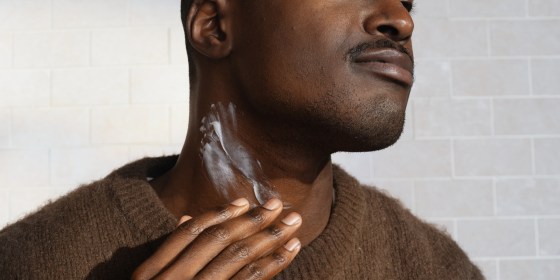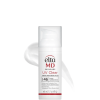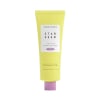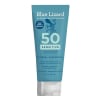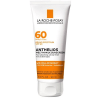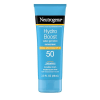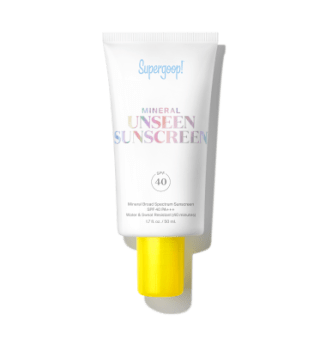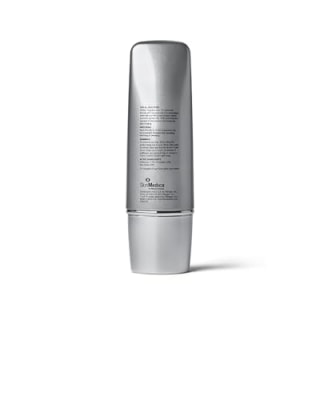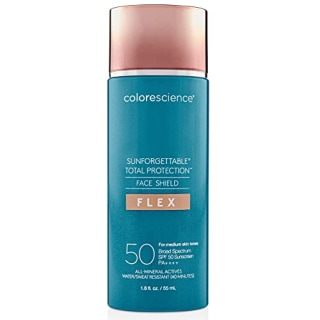We don’t always have the answers, but we have some people on speed dial who do — which is why we present to you our series FYI where we have experts explain if lip balm is actually bad, how often should you wash your hair and more.
Growing up, I constantly heard my mom reminding me to apply sunscreen before I walked out the door. She still reminds me to apply sunscreen when I’m sitting on the deck or lying on my beach towel outside.
From my conversations with board-certified dermatologists, I know firsthand the importance of protecting my skin from the sun. I constantly make sure to include one into my skin care routine, but have always wondered if it’s necessary when all I’m doing is sitting at my desk or lounging around at home. That’s why I asked four dermatologists whether it’s important to wear sunscreen inside and other ways to protect your skin indoors.
SKIP AHEAD Do you need to wear sunscreen indoors? | The best indoor sunscreens | What is the difference between UVA, UVB and blue light? | What type of sunscreen is better for indoor usage? | Why trust NBC Select?
Want more from NBC Select? Sign up for our newsletter, The Selection, and shop smarter.
Do you need to wear sunscreen indoors?
Yes. Even indoors, you should wear sunscreen, especially if you’re sitting by a window or using a digital screen for an extended period, according to Del Campo. And don’t think that a gloomy winter day or summer thunderstorms are reasons not to apply sunscreen indoors, says Gmyrek.
It’s important for three different reasons. UVA rays and UVB rays can still pass through glass and expose your skin to its harmful rays, and the blue light that gets emitted through screens can also impact your skin’s health, he says.
Our favorite indoor sunscreens of 2025
Best overall: EltaMD UV Clear Broad-Spectrum SPF 46
- Lightweight
- Suitable for all skin types
- Oil-free
- Higher price point
This EltaMD sunscreen is an expert-recommended and NBC Select staff-favorite option. “It provides excellent protection without clogging pores and is enriched with niacinamide for added skin benefits,” says Dr. Danilo Del Campo, a board-certified dermatologist and founder of Chicago Skin Clinic.
Best for sensitive skin: Blue Lizard Sensitive Mineral SPF 50 Sunscreen Lotion
- Reef-safe
- Available in multiple sizes
- Color cap indicator
- It may take a while to blend
This mineral sunscreen is great for those with sensitive skin because it doesn’t have common irritants like fragrances or chemical filters and has soothing, moisturizing ingredients like aloe vera, according to the brand. Not only do reviewers love its gentle formula, but they also love how well it holds up for family members of all ages. It’s water-resistant for up to 80 minutes, too.
Best for oily skin tones: Neutrogena Hydro Boost Water Gel Lotion SPF 50
- Hydrating
- Lightweight
- Non-greasy
- May stain some fabrics
This oil-free sunscreen is noncomedogenic, meaning it won’t clog pores and combines hydration with sun protection, making it ideal for daily use indoors and outdoors, according to Del Campo. The gel lotion also has a refreshing, water-like feel that doesn’t leave behind any heaviness or greasy residue, according to the brand. Reviewers say it almost doubles as a moisturizer with SPF and sits well under makeup; however, you will want to wait a second before applying any additional products on top of it. It has a 4.5-star average rating from over 5,700 reviews on Amazon.
Easiest to blend in: Supergoop Unseen Mineral Sunscreen SPF 40
- Whipped texture
- No white cast
- Non-irritating
- Higher price point
As a beauty writer, my family and I have tried dozens of sunscreens, and this one is unanimously in the top five for everyone, including my young elementary-aged siblings and my mature-skinned grandparents. This is because it’s moisturizing and gentle on sensitive skin, and it blends in easily thanks to its lightweight, mousse-like consistency. It also doesn’t leave a white cast on my medium complexion (the same goes for my relatives).
Best for dry skin: La Roche-Posay Anthelios Melt-in Milk Sunscreen SPF 60
- Suitable for all skin types
- Absorbs quickly
- For face and body
- Can be slightly greasy
Del Campo recommends this reef-safe sunscreen because it’s water-resistant for up to 80 minutes, making it versatile for various activities. Although it’s also suitable for all skin types, this is especially great for dry skin. This is because it has vitamin E, glycerin, dimethicone and the brand’s proprietary thermal spring water, which hydrates and soothes the skin while locking in moisture, according to La Roche-Posay.
Best for fine lines: SkinMedica Total Defense + Repair SPF 34
- Pump packaging
- For all skin types
- Comes in a tinted option
- Needs a few pumps
This sunscreen, which also protects the skin from infrared rays, helps reduce the appearance of sun-damaged skin and fine lines, according to the brand. “I love that this sunscreen is super lightweight and easy to blend,” says NBC Select updates editor Mili Godio. “It also doesn’t irritate my sensitive skin or exacerbate my rosacea, which is very common with other sunscreens.”
Editor’s pick: Herbivore Star Seed Sheer Glow Mineral Sunscreen SPF 30
- Blends in easily
- Non-greasy
- Reef-safe
- Nothing to note at this time
This NBC Select-staff favorite, formulated with ingredients like prebiotics, vitamin C, and vitamin E, has a peach tint that helps reduce white casts on all skin tones, leaving a sheer finish.
“I love how lightweight this sunscreen is and how the tint gives me a little bit of coverage without looking like I have anything on,” says NBC Select editorial projects manager Rebecca Rodriguez. “My skin instantly looks brighter after I apply it and it helps smooth over any redness on my face.”
Best tinted sunscreen: Colorescience Sunforgettable Total Protection Face Shield Flex SPF 50
- Four shade options
- Natural skin finish
- Sweat- and water-resistant
- Higher price point
This sunscreen, which is suitable for all skin types, protects the skin from UVA, UVB, blue light, pollution and infrared damage, according to the brand. Not only is it excellent at acting as a line of defense from potential damage, but it’s also a worthwhile option for those who prefer a tinted sunscreen and want to avoid the risk of a white cast.
NBC Select commerce editor Lindsay Schneider enjoys using it because it dispenses as a traditional white sunscreen but then blends and adapts to her skin tone the more she works it in. “Unlike other options I’ve tried, it’s not overly sticky and importantly doesn’t smell, which in my experience a lot of tinted sunscreen formulas tend to do,” she says.
What is the difference between UVA, UVB and blue light?
- UVA rays: UVA rays, a form of ultraviolet radiation, go deeper into the skin than UVB rays, primarily causing skin aging and long-term damage, including wrinkles and age spots, according to Del Campo. They do this because they break down collagen and elastic tissue, says Dr. Robyn Gmyrek, a board-certified dermatologist at Unionderm in New York City. UVA rays also play a role in the development of skin cancer. This type of radiation subtly harms the skin, initially leaving no noticeable marks but leading to serious damage as time goes on, says Del Campo.
- UVB rays: Another variation of ultraviolet radiation, this type of ray targets the skin’s surface layer. They are mainly responsible for causing sunburn and significantly contribute to skin cancer risk. The intensity of UVB rays changes with the time of day and season, offering a somewhat predictable pattern yet remaining dangerously harmful, according to Del Campo.
- Blue light: Blue light, or high-energy visible (HEV) light, comes from the sun, digital screens, and LED lighting. Extended exposure to blue light has been linked to skin aging and hyperpigmentation. Recent studies suggest that blue light can induce oxidative stress in the skin, leading to premature aging. In our tech-driven world, this type of light is becoming an increasingly significant concern for skin health, he says.
What type of sunscreen is better for indoor usage?
Sunscreens come in three forms: mineral, chemical and hybrid, which is a combination of both. According to our experts, the choice depends on personal preference and skin type. Whichever option you choose, it should have an SPF rating of 30+ and offer broad-spectrum protection.
- Mineral: This type of sunscreen uses physical blockers, including iron oxide and titanium dioxide as active ingredients. These ingredients sit on top of the skin and create a physical barrier, blocking the ultraviolet and blue light from reaching the skin’s surface, according to Gmyrek.
- Chemical: Chemical sunscreens use chemical filters as their active ingredients, which absorb into your skin, according to board-certified dermatologist Dr. Hadley King. Unlike creating a barrier, it will absorb UV radiation and convert it to heat that your skin releases. These also tend to be less visible on the skin, says Del Campo.
“Think of it like choosing between an umbrella and a raincoat — both protect you from rain, but the best choice depends on your needs. An umbrella (mineral sunscreen) might be more cumbersome but gives immediate, broad coverage. In contrast, a raincoat (chemical sunscreen) might be more convenient and comfortable but can take a little while to provide complete protection once put on,” says Del Campo.
Meet our experts
At NBC Select, we work with experts who have specialized knowledge and authority based on relevant training and/or experience. We also take steps to ensure all expert advice and recommendations are made independently and without undisclosed financial conflicts of interest.
- Dr. Hadley King is a board-certified dermatologist at her own private practice in New York City.
- Dr. Robyn Gmyrek is a board-certified dermatologist at UnionDerm Central Park in New York City.
- Dr. Danilo Del Campo is a board-certified dermatologist and founder of the Chicago Skin Clinic in Chicago, IL.
- Dr. Mary Stevenson is a board-certified dermatologist and associate professor at the Ronald O. Perelman Department of Dermatology at NYU Grossman School of Medicine.
Why trust NBC Select?
I'm an associate reporter at NBC Select covering skin care, hair care, gift guides and ongoing sales. I’ve also written articles about the best detangling sprays and clarifying shampoos. For this story, I interviewed four dermatologists and shared their recommendations.
Catch up on NBC Select’s in-depth coverage of tech and tools, wellness and more, and follow us on Facebook, Instagram, Twitter and TikTok to stay up to date.
